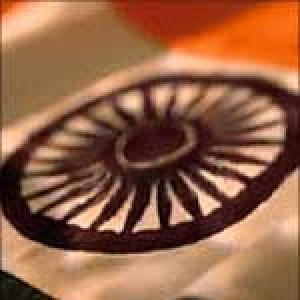Ever wondered why some people are liberal while others have conventional political views?
Well, scientists say the political ideology of an individual could be in the genes.
Researchers at the University of California and Harvard University claimed that they have found the first evidence of a gene which plays a major role in shaping an individual's political leanings.
The gene known as DRD4, which had previously been linked to risk-taking behaviour, makes people more likely to be liberal but only if they had a lot of friends when they were in high school, they found.
"This is the first study to elaborate a specific gene-environment interaction that contributes to ideological self-identification," said UC Professor James Fowler, who led the study.
"These findings suggest that political affiliation is not based solely on the kind of social environment people experience."
For their research, published in The Journal of Politics, the scientists analysed data of 2,574 individuals who were part of the National Longitudinal Study of Adolescent Health.
The survey collected information about the participants' genes, friendship networks, and about their political beliefs later in life.
By analysing the information, the researchers found that people with the "7R" version of the DRD4 gene were more likely to be liberal as adults, but only if they had an active social life when they were adolescents.
According to the scientists, the gene DRD4 influences the production of molecular structures in the brain that help transmission of the chemical dopamine among brain cells.
Dopamine is a messenger chemical affecting processes that control movement, emotional response and ability to experience pleasure and pain.
Previous research has identified a connection between a variant of DRD4 and novelty-seeking behaviour. This behaviour has previously been associated with personality traits related to political liberalism, the investigators noted.
In the latest study, Fowler and colleagues hypothesised that people with the novelty-seeking gene variant would be more interested in learning about their friends' points of view. Thus, they might be exposed to a wider variety of social norms and lifestyles, which could foster a liberal view point.
It is likely that "the combination of hundreds if not thousands of genes interacting with each other and with external stimuli that influence political attitudes and behaviour," they said.
However, the researchers said that just having the gene does not make a person liberal, nor does "simply having a greater number of friends as teenager". The gene also does not cause an individual to have more friends.
"Rather it is the crucial interaction of two factors -- the genetic predisposition and the environmental condition of having many friends in adolescence -- that is associated with being more liberal," they said.
The person's age, ethnicity, gender or culture appeared to make no difference, they added.
They hoped that the research will spur more studies to investigate the interplay between genes and environmental factors in shaping complex human behaviour.









